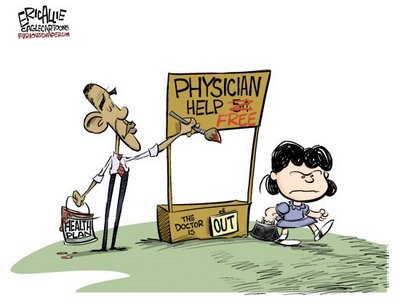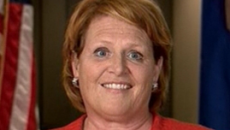Brilliant New Solution To Health Care Costs: Government Price Controls

Pricing is paramount in a free market. Price signals are what regulates the market. They’re set by supply and demand, and in turn control supply and demand. When supplies are short, and demand is high, prices go up to protect supply and discourage demand. Price also encourages expansion of supply to meet demand by being set at levels which produce profit, and thus capital for investment in future supply.
Prices, in other words, are of the utmost importance in a free market. But now a study suggests that the government ought to remove pricing from the free market and instead institute price controls set not by supply and demand but by government bureaucrats.
WASHINGTON, Jan 10 (Reuters) – The United States could save $2 trillion in healthcare spending over the next decade, if the U.S. government used its influence in the public and private sectors to nudge soaring costs into line with economic growth, a study released on Thursday said.
Compiled by the nonpartisan Commonwealth Fund, the study recommends holding the $2.8 trillion U.S. healthcare system to an annual spending target by having Medicare, Medicaid, other government programs and private insurers encourage providers to accelerate adoption of more cost-effective care.
Such a plan would require new legislation from a bitterly divided U.S. Congress, where Republicans would likely oppose new government controls, despite claims by the study’s authors that families, employers and government budgets would receive long-sought relief from their growing financial healthcare burdens if the changes were enacted.
Of all the things that have come in up America’s slow march toward government-controlled health care, this ought to scare Americans the most. This is the thin, leading edge of rationing. This is the beginning of the “death panels” Palin worried about. If the government is controlling price, they control everything.
If the government decides a certain procedure, or a certain medicine, is too expensive it simply won’t be available any more. Medical research will be seriously hampered without an influx of capital from accurate market pricing. Our health care system will be poorer for being price-controlled.
But it might be cheaper, I guess. Small consolation.
Truth be told, the run-away costs in health care should be solved by removing government distortions from the health care markets. Rather than the government imposing arbitrary price controls set by markets, why not deregulate the insurance and care markets and let individual Americans find the best ways to save costs? End the promotion of third-party, government or employer-based insurance and make insurance and health care a supplier-to-consumer transaction again. And then end restrictions such as the prohibition on selling insurance across state lines, etc.
We could have cheaper health care and health insurance without the government. Unfortunately, that would mean politicians giving up power, and they won’t do that.







